[Eckhart Tolle] Stillness Speaks – Book Notes
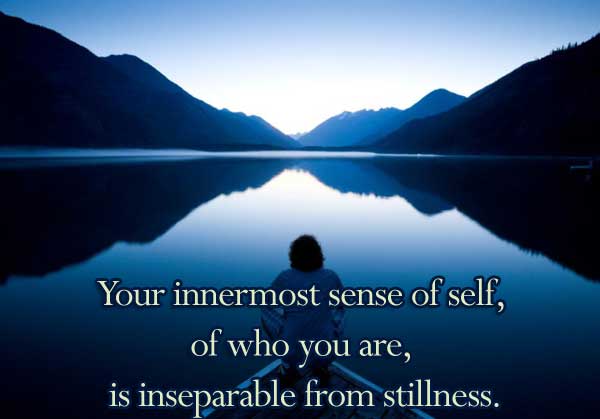
Notes from the book ‘Stillness Speaks’ by Eckhart Tolle
Stillness is your essential nature. What is stillness? The inner space or awareness in which the words on this page are being perceived and become thoughts. Without that awareness, there would be no perception, no thoughts, no world.
You are that awareness, disguised as a person.
Whenever there is some silence around you — listen to it. That means just notice it. Pay attention to it. Listening to silence awakens the dimension of stillness within yourself, because it is only through stillness that you can be aware of silence.
See that in the moment of noticing the silence around you, you are not thinking. You are aware, but not thinking.
When you become aware of silence, immediately there is that state of inner still alertness. You are present. You have stepped out of thousands of years of collective human conditioning.
Look at a tree, a flower, a plant. Let your awareness rest upon it. How still they are, how deeply rooted in Being. Allow nature to teach you stillness.
When you look at a tree and perceive its stillness, you become still yourself. You connect with it at a very deep level. You feel a oneness with whatever you perceive in and through stillness. Feeling the oneness of yourself with all things is love.
What is wisdom and where is it to be found? Wisdom comes with the ability to be still. Just look and just listen. No more is needed. Being still, looking, and listening activates the non-conceptual intelligence within you. Let stillness direct
your words and actions.
In you, as in each human being, there is a dimension of consciousness far deeper than thought. It is the very essence of who you are.
Finding that dimension frees you and the world from the suffering you inflict on yourself and others when the mind-made “little me” is all you know and runs your life. Love, joy, creative expansion, and lasting inner peace cannot come into your life except through that unconditioned dimension of consciousness.
Here is a new spiritual practice for you: don’t take your thoughts too seriously.
The human mind, in its desire to know, understand, and control, mistakes its opinions and viewpoints for the truth. It says: this is how it is. You have to be larger than thought to realize that however you interpret “your life” or someone else’s life or behavior, however you judge any situation, it is no more than a viewpoint, one of many possible perspectives. It is no more than a bundle of thoughts. But reality is one unified whole, in which all things are interwoven, where nothing exists in and by itself. Thinking fragments reality — it cuts it up into conceptual bits and pieces.
The thinking mind is a useful and powerful tool, but it is also very limiting when it takes over your life completely, when you don’t realize that it is only a small aspect of the consciousness that you are
Spiritual awakening is awakening from the dream of thought
The realm of consciousness is much vaster than thought can grasp. When you no longer believe everything you think, you step out of thought and see clearly that the thinker is not who you are.
Prejudice of any kind implies that you are identified with the thinking mind. It means you don’t see the other human being anymore, but only your own concept of that human being. To reduce the aliveness of another human being to a concept is already a form of violence.
The next step in human evolution is to transcend thought. This is now our urgent task. It doesn’t mean not to think anymore, but simply not to be completely identified with thought, possessed by thought.
The body then becomes a doorway, so to speak, into a deeper sense of aliveness underneath the fluctuating emotions and underneath your thinking.
You may have overlooked that brief periods in which you are “conscious without thought” are already occurring naturally and spontaneously in your life.
You may be engaged in some manual activity, or walking across the room, or waiting at the airline counter, and be so completely present that the usual mental static of thought subsides and is replaced by an aware presence. Or you may find yourself looking at the sky or listening to someone without any inner mental commentary. Your perceptions become crystal clear, unclouded by thought.
To the mind, all this is not significant, because it has “more important” things to think about. It is also not memorable, and that’s why you may have overlooked that it is already happening.
The truth is that it is the most significant thing that can happen to you. It is the beginning of a shift from thinking to aware presence.
Become at ease with the state of “not knowing.” This takes you beyond mind because the mind is always trying to conclude and interpret. It is afraid of not knowing. So, when you can be at ease with not knowing, you have already gone beyond the mind. A deeper knowing that is non-conceptual then arises out of that state.
A power and intelligence greater than you and yet one with you in essence takes over. There is no decision-making process anymore; spontaneous right action happens, and “you” are not doing it. Mastery of life is the opposite of control. You become aligned with the greater consciousness. It acts, speaks, does the works.
When you think or speak about yourself, when you say, “I,” what you usually refer to is “me and my story.” This is the “I” of your likes and dislikes, fears and desires, the “I” that is never satisfied for long. It is a mind-made sense of who you are, conditioned by the past and seeking to find its fulfillment in the future.
When you recognize that there is a voice in your head that pretends to be you and never stops speaking, you are awakening out of your unconscious identification with the stream of thinking. When you notice that voice, you realize that who you are is not the voice–the thinker–but the one who is aware of it.
Knowing yourself as the awareness behind the voice is freedom By giving your full attention to this moment, an intelligence far greater than the egoic mind enters your life.
Be there as the witnessing presence of your inner state. You don’t have to do anything. With the awareness comes transformation and freedom.
When you make friends with the present moment, you feel at home no matter where you are. When you don’t feel at home in the now, no matter where you go, you will carry unease with you.
Do you treat this moment as if it were an obstacle to be overcome? Do you feel you have a future moment to get to that is more important?
Since the future never arrives, except as the present, it is a dysfunctional way to live. It generates a constant undercurrent of unease, tension, and discontent. It does not honor life, which is Now and never not Now.
Feel the aliveness within your body. That anchors you in the Now
Ultimately you are not taking responsibility for life until you take responsibility for this moment–Now. This is because Now is the only place where life can be found.
It means to be in alignment with life.
When you say “yes” to what is, you become aligned with the power and intelligence of Life itself. Only then can you become an agent for positive change in the world.
The moment you enter the Now with your attention, you realize that life is sacred. There is a sacredness to everything you perceive when you are present. The more you live in the Now, the more you sense the simple yet profound joy of Being and the sacredness of all life.
When you step into the Now, you step out of the content of your mind. The incessant stream of thinking slows down. Thoughts don’t absorb all your attention anymore, don’t draw you in totally. Gaps arise in between thoughts–spaciousness, stillness. You begin to realize how much vaster and deeper you are than your thoughts.
I am not my thoughts, emotions, sense perceptions, and experiences. I am not the content of my life. I am Life. I am the space in which all things happen. I am consciousness. I am the Now. I Am.
The now is inseparable from who you are at the deepest level.
The truth is you don’t have a life, you are life, the one life, the one conscious that pervades the entire universe and takes temporary form to experience itself as a stone or a blade of grass, as an animal, a person, a star or a galaxy. Can you sense deep within that you already know that. Can you sense that you already are that?
Time is useless, however, for the most essential thing in life, the one thing that really matters, self-realization–which means knowing who you are beyond the surface self, beyond your name, your physical form, your history, your story.
By knowing yourself as the awareness in which phenomenal existence happens, you become free of dependency on phenomena and free of self seeking in situations, places, and conditions. In other words, what happens or doesn’t happen is not that important anymore. Things lose their heaviness, their seriousness. A playfulness comes into your life. You recognize this world as a cosmic dance, the dance of form. No more and no less.
When you know who you truly are, there is an abiding alive sense of peace. You could call it joy because that’s what joy is, vibrantly alive peace. It is the joy of knowing yourself as the very life essence before life takes on form. That is the joy of being, of being who you truly are.
Pure consciousness is life before it comes into manifestation and that life looks at the world of form through your eyes because consciousness is who you are.
When you know yourself as that, then you recognize yourself in everything. It is a state of complete clarity of perception.
Through you, formless consciousness has become aware of itself.
When you completely accept this moment, when you no longer argue with what is, the compulsion to think lessens and is replaced by an alert stillness. You are fully conscious, yet the mind is not labeling this moment in any way. This state of inner nonresistance opens you to the unconditioned consciousness that is infinitely greater than the human mind. This vast intelligence can then express itself through you and assist you, both from within and from without. That is why, by letting go of inner resistance, you often find circumstances change for the better.
Surrender comes when you no longer ask, “Why is this happening to me?”
There are situations where all answers and explanations fail. Life does not make sense anymore. Or someone in distress comes to you for help, and you don’t know what to do or say.
When you fully accept that you don’t know, you give up struggling to find answers with the limited thinking mind, and that is when a greater intelligence can operate through you. And even thought can then benefit from that, since the greater intelligence can flow into it and inspire it.
Sometimes surrender means giving up trying to understand and becoming comfortable with not knowing.
Surrender, one could say, is the inner transition from resistance to acceptance, from “no” to “yes.” When you surrender, your sense of self shifts from being identified with a reaction or mental judgment to being the space around the reaction or judgment. It is a shift from identification with form–the thought or the emotion–to being and recognizing yourself as that which has no form–spacious awareness.
Whatever you accept completely will take you to peace, including the acceptance that you cannot accept, that you are in resistance.
The air that you breathe is nature, as is the breathing process itself.
Bring your attention to your breathing and realize that you are not doing it. It is the breath of nature. If you had to remember to breathe, you would soon die, and if you tried to stop breathing, nature would prevail.
You reconnect with nature in the most intimate and powerful way by becoming aware of your breathing and learning to hold your attention there. This is a healing and deeply empowering thing to do. It brings about a shift in consciousness from the conceptual world of thought to the inner realm of unconditioned consciousness.
That is not who they are, but that is who they appear to be. When you pronounce judgment upon someone, you confuse those conditioned mind patterns with who they are. To do that is in itself a deeply conditioned and unconscious pattern. You give them a conceptual identity, and that false identity becomes a prison not only for the other person but also for yourself.
To let go of judgment does not mean that you don’t see what they do. It means that you recognize their behavior as a form of conditioning, and you see it and accept it as that. You don’t construct an identity out of it for that person.
That liberates you as well as the other person from identification with conditioning, with form, with mind. The ego then no longer runs your relationships.
Thoughts and concepts create an artificial barrier, a separation between human beings. Your interactions are then not rooted in Being, but become mind-based. Without the conceptual barriers, love is naturally present in all human interactions.
True listening is another way of bringing stillness into the relationship. When you truly listen to someone, the dimension of stillness arises and becomes an essential part of the relationship. But true listening is a rare skill. Usually, the greater part of a person’s attention is taken up by their thinking. At best, they may be evaluating your words or preparing the next thing to say. Or they may not be listening at all, lost in their own thoughts.
True listening goes far beyond auditory perception. It is the arising of alert attention, a space of presence in which the words are being received. The words now become secondary. They may be meaningful or they may not make sense. Far more important than what you are listening to is the act of listening itself, the space of conscious presence that arises as you listen. That space is a unifying field of awareness in which you meet the other person without the separative barriers created by conceptual thinking. And now the other person is no longer “other.” In that space, you are joined together as one awareness, one consciousness.
Whenever you meet anyone, no matter how briefly, do you acknowledge their being by giving them your full attention, or are you reducing them to a means to an end, a mere function or role. What is the quality of your relationship with the cashier at the supermarket, the parking attendant, the repair man, the customer?
A moment of attention is enough. As you look at them or listen to them, there is an alert stillness. Perhaps only two or three seconds. Perhaps longer. That is enough for something more real to emerge than the roles we usually play and identify with.
All roles are part of the conditioned consciousness that is the human mind. That which emerges through the act of attention is the unconditioned–who you are in your essence underneath your name and form. You are no longer acting out a script. You become real. When that dimension emerges from within you, it also draws it forth from within the other person. Ultimately, of course, there is no other and you are always meeting yourself.
When a form that you had unconsciously identified with as part of yourself leaves you or dissolves, that can be extremely painful. It leaves a hole, so to speak, in the fabric of your existence.
When this happens, don’t deny or ignore the pain or the sadness that you feel. Accept that it is there. Beware of your mind’s tendency to construct a story around that loss in which you are assigned the role of victim. Fear, anger, resentment, or self-pity are the emotions that go with that role. Then become aware of what lies behind those emotions as well as behind the mind-made story: that hole, that empty space. Can you face and accept that strange sense of emptiness? If you do, you may find that it is no longer a fearful place. You may be surprised to find peace emanating from it.
True freedom and the end of suffering is living in such a way as if you had completely chosen whatever you feel or experience at this moment. This inner alignment with Now is the end of suffering
Is suffering really necessary. Yes and no. If you had not suffered as you have, there would be no depths to you as a human being–no humility, no compassion. You would not be listening to this now. Suffering cracks open the shell of ego. And then comes a point where it has served its purpose.
Suffering is necessary until you realize that it is unnecessary.
When you are suffering, when you are unhappy, stay totally with what is now. Unhappiness or problems cannot survive in the Now.
Watch what happens when you don’t name an experience as bad and instead bring an inner acceptance, an inner “yes” to it, and so let it be as it is.
Whatever your life situation is, how would you feel if you completely accepted it as it is, right now?
Chronic physical pain is one of the harshest teachers you can have. Resistance is futile is its teaching. Nothing could be more normal than an unwillingness to suffer. Yet, if you can let go of that unwillingness, and instead allow the pain to be there, you may notice a subtle inner separation from the pain, a space between you and the pain, as it were. This means to suffer consciously, willingly. When you suffer consciously, physical pain can quickly burn up the ego in you since ego consists largely of resistance. The same is true of extreme physical disability.
Related articles across the web

Site Notifications/Chat:
- Telegram Post Updates @JourneyToABetterLife (channel)
- Telegram Chatroom @JourneyBetterLifeCHAT (say hi / share info)
- Gettr Post Updates @chesaus (like fakebook)
Videos:
Post navigation
Comments are closed.

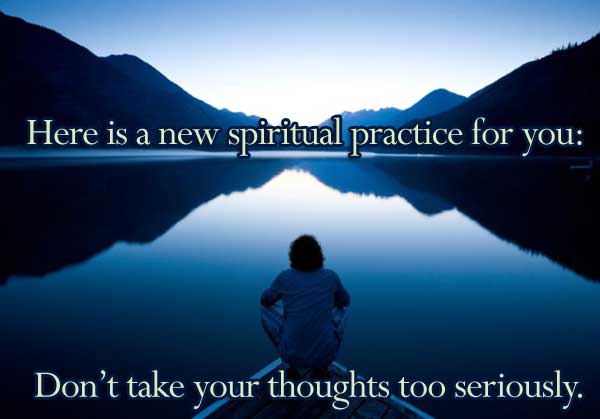
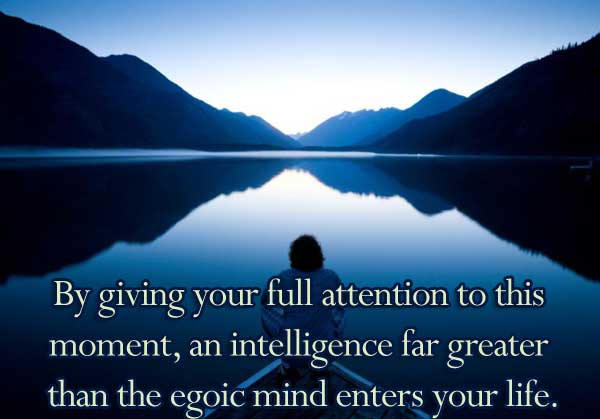
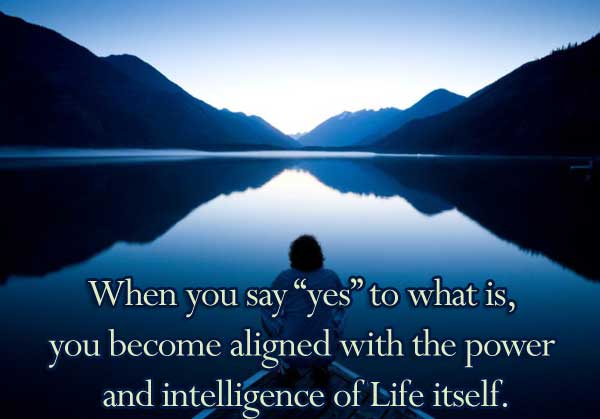
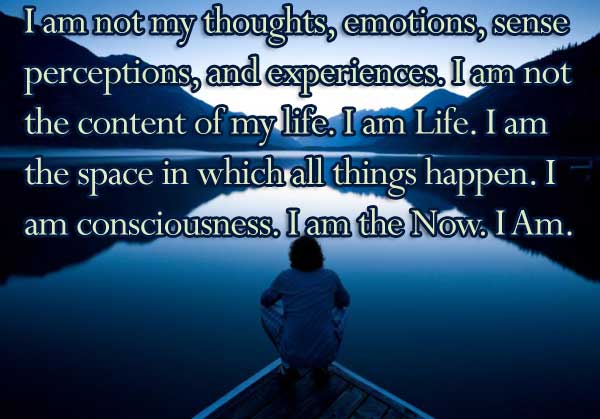


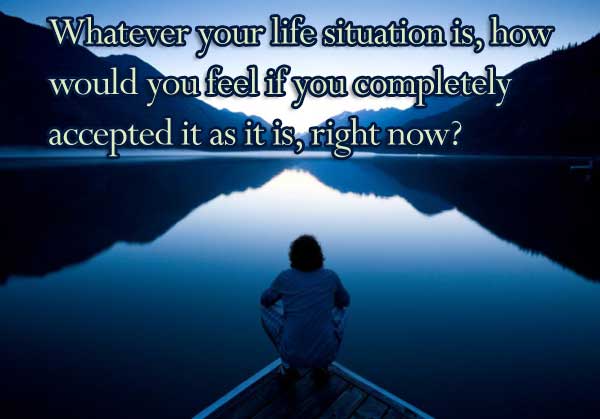
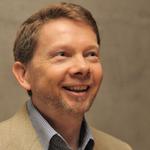
 ‘Oprah & Eckhart Tolle: A New Earth’: OWN presents a journey through spiritual teacher’s seminal work
‘Oprah & Eckhart Tolle: A New Earth’: OWN presents a journey through spiritual teacher’s seminal work Find Yourself: How Eckhart Tolle Came Back from His Lowest Point
Find Yourself: How Eckhart Tolle Came Back from His Lowest Point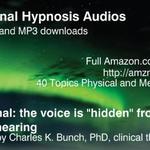



![[QA] Being Fake, No Job Resonates after you Awaken](https://pennybutler.com/wp-content/uploads/2015/05/socialmedia-discussions.png)
![[Hangout] Be Yourself, Be Weird, Do your own Thing, Travel](https://pennybutler.com/wp-content/uploads/2015/08/hangout_snapshot_5.jpg)
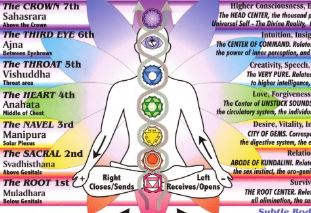
Hi any time am meditating i always feel something moving in my body and i want to know why.A very strong emotion. Thanks!
Max.
Hi,Any time am.meditating i can feel something is moving inside my body and i want to know why.Very very strong Emotion.
Thanks!
Max
Hey Penny! I simply would like to offer you a huge thumbs up for the great information you have got here on this post and the other book-notes. I will be returning to your site for more soon.